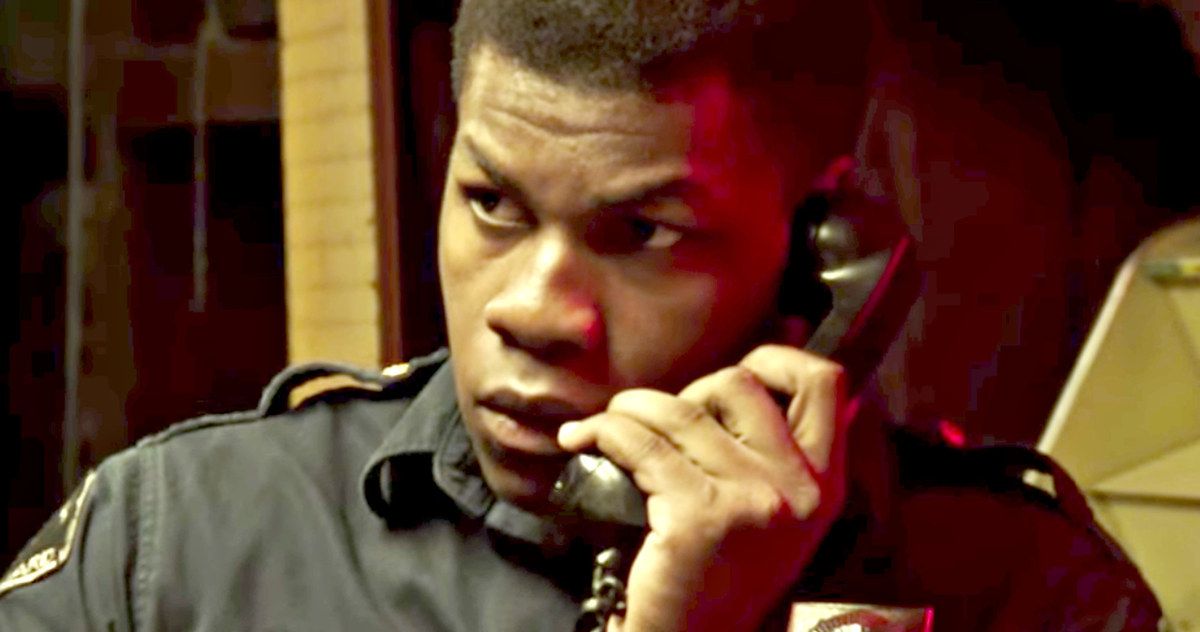Kathryn Bigelow and screenwriter Mark Boal return to greatness with Detroit. The Oscar winning team behind The Hurt Locker and Zero Dark Thirty recreate racial persecution with stark composure. The film depicts events at the Algiers Motel during the race riots of July 1967. You will shudder with disgust as hateful policemen embark on a murderous campaign of terror. Detroit is a brutal and unflinching experience. It brings to light a horrific crime that took place during one of America's darkest periods.
Detroit is a city simmering with racial tension. A police raid on an unlicensed black bar results in the tipping point. Neighborhoods explode into rioting. Police and the National Guard struggle to deal with looters and angry citizens. Algee Smith stars as Larry Reed, the lead singer of The Dramatics. Their big performance debut is spoiled by the rioting. John Boyega co-stars as Melvin Dismukes, an armed security guard. He's hired by a hardware store to prevent looting. Melvin tries to calm conflicts between the black locals and white law enforcement. He is branded an "Uncle Tom" for his efforts.
Philip Krauss (Will Poulter) and his team of white street cops are on a bloody rampage. Fed up with the lawless Negroes, they're delivering justice by baton and shotgun. A foolish prank draws the racist police, Melvin Dismukes, and Larry Reed to the Algiers Motel. The predominantly black motel had two white patrons (Hannah Murray, Kaitlyn Dever) that fateful night. Their presence set off a harrowing incident of police misconduct. It struck to the core of the racial divide in America. Law enforcement was an all powerful oppressor, while poor blacks suffered consequences with little recourse to justice.
Detroit hits you like a punch in the stomach. It is an uneasy film to watch. Bigelow and Boal show the darkest parts of human nature. On one hand, you have the anger and bitterness of the corrupt cops. They are so filled with hatred, their vile actions unfettered by guilt or conscience. Then you have the subjects of their interrogation, completely powerless, overcome with abject fear and hopelessness. It is an unforgiving journey into the dark abyss of humanity's worst attributes. I will temper this point by saying that every character is not painted by the same brush. There is a clear focus on the leads and specific circumstances. All white cops aren't racists. All blacks aren't rioting to get a free TV. Bigelow and Boal are nuanced. Detroit does not categorically indict people.
Kathryn Bigelow is always bold in her approach to filmmaking. She puts everything on screen to be judged. From Point Break to here in Detroit, she succeeds in her no holds barred approach. Bigelow shows the hard truth of situational awareness. Nowhere is this more evident than in her portrayal of Melvin Dismukes. As an armed black security officer, he had the most difficult line to straddle. Protect his boss's property while trying to keep the peace on the street. Dismukes best intentions ring hollow in the aftermath. His actions at the Algiers may be just as complicit. I certainly believe so.
From Annapurna Pictures, Detroit draws parallels to the policing issues and racial disparities of today. Fifty years has passed since the riots, but from Ferguson to Philando Castile; these problems continue to persist. Kathryn Bigelow and Mark Boal tell an uncomfortable story. The racial history of the country cannot be swept under the rug. The truth, no matter how ugly, must be told. Detroit is a not so distant reminder of how bad things were...and can still be.

